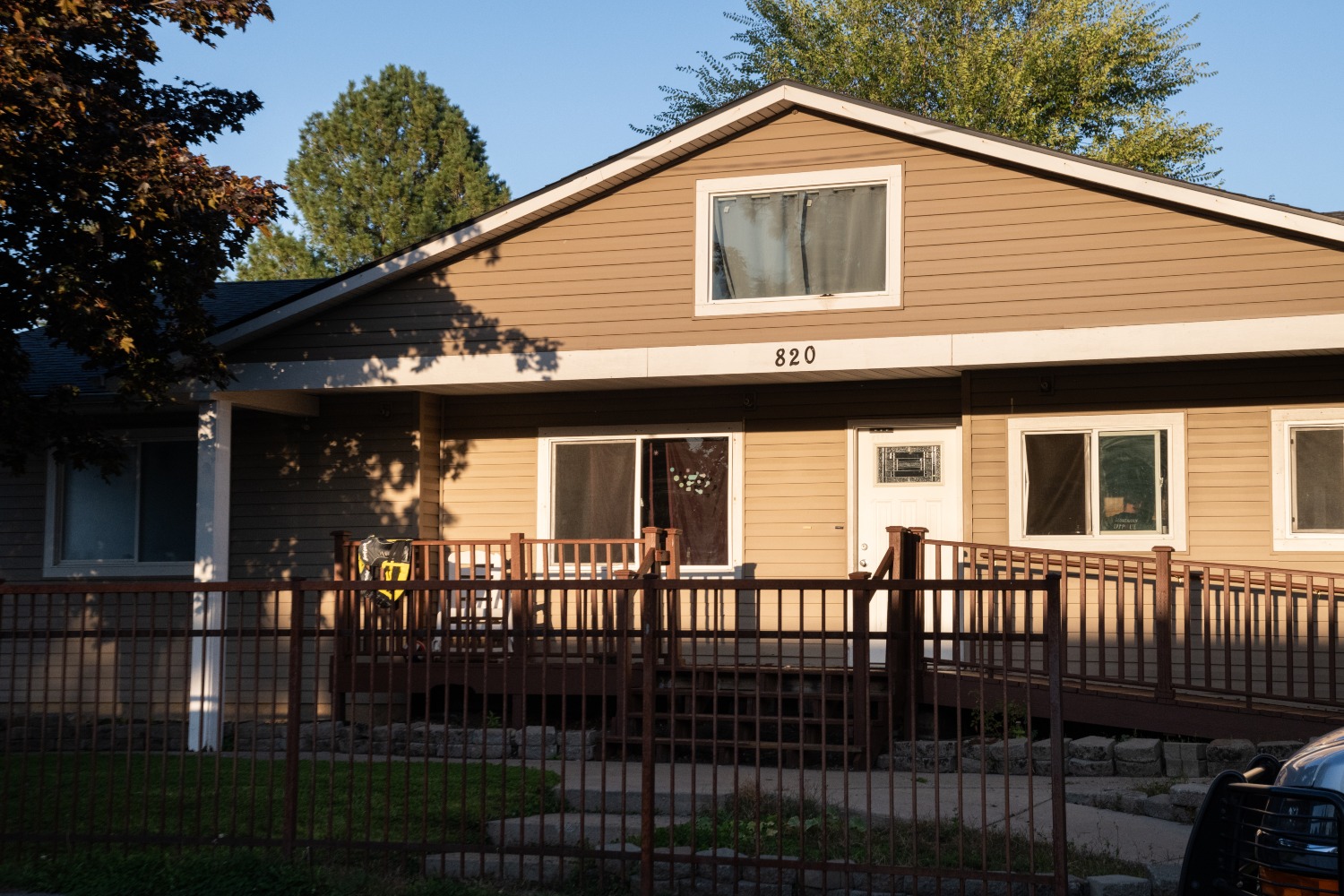The demand for action comes after InvestigateWest showed how the state’s hands-off approach allowed dangerous conditions to go unchecked
By Wilson Criscione / InvestigateWest
Idaho lawmakers said they will look to boost oversight of children’s residential facilities in response to an InvestigateWest report detailing abuse and neglect at a girls’ treatment home in Post Falls.
Rep. Marco Erickson, R-Idaho Falls, said if he had the power, he’d “fire and replace every one of the administrators” at Cornerstone Cottage, the facility that was featured in InvestigateWest’s investigation.
“Their job is to protect children and not to harm them,” said Erickson, vice chair of the Health and Welfare committee in the state House.
State Senate Minority Leader Melissa Wintrow, D-Boise, part of the Health and Welfare committee in the state Senate, said what she saw in the article was “appalling,” adding that she plans to inquire further about the issue.
State oversight of Cornerstone Cottage lies with the Idaho Department of Health and Welfare, which licenses Cornerstone Cottage and 27 other privately run facilities for youth. State regulators, however, can’t point to the last time they suspended or revoked the license of any such facility. When employees at Cornerstone alerted them in 2021 to years of alleged abuse and neglect there, which at times put children’s lives at risk, regulators paused new admissions for three months — an action that did little to keep girls out of danger, records show. Cornerstone, meanwhile, fired employees who made the complaint to the state, including Emily Carter, who has since gone to work for Unsilenced, a nonprofit working to combat child abuse in the troubled teen industry.

By 2020, Emily Carter was fresh out of college and wanted to make a difference for girls who were like her, so when she saw the job opening at Cornerstone, she went for it. (Leah Nash/InvestigateWest)
Records also revealed that the state knew for years that staff at Cornerstone did not receive the proper training on physical restraints. Records and interviews show there were multiple incidents at the facility involving “prone restraints,” a technique forbidden by the state that involves pinning a child to the ground face down.
Those details particularly outraged Erickson, who works with troubled kids outside of the Legislature as program director for Community Youth in Action, a center for teens in Idaho Falls.
“I was trained on restraint and seclusion. Never once did I do that in my career,” he said.
Advocacy groups were also shocked. The allegations presented in the article coupled with the apparent lack of state oversight “deeply concerned” the Idaho Federation of Families for Children’s Mental Health, said executive director Ruth York.
“What’s concerning and upsetting is that we should have some oversight practices in place, yet somehow it seems like bad things happen to youth in facilities that no oversight body or licensing body is catching,” York said.
Meg Appelgate, CEO of Unsilenced, which advocates for reform in the troubled teen industry, said Cornerstone Cottage needs to be “immediately shut down.”
“Cornerstone is supposed to be catching the kids that are falling through the cracks, but in reality it seems they are just taking the money and throwing the kids into the abyss,” Appelgate said.
Appelgate pointed to the death of a Washington girl named Taylor Goodridge, who died of a treatable medical condition at Utah’s Diamond Ranch Academy, another troubled teen program that recently shut down. She warned that a child in Idaho could suffer a similar fate if the state doesn’t take a stand and “cease what appears to be state-sanctioned abuse in their facilities.”
“Idaho has been brought on its knees by child abuse allegations in real time, and we are getting a first-hand view of how Idaho handles these types of things,” Appelgate said, referring to InvestigateWest’s reporting.

Cornerstone Cottage opened in 2016 in Post Falls, Idaho, a booming bedroom community 25 miles east of Spokane. While from the outside, the building could be mistaken for a suburban home, Post Falls police received 321 calls from Cornerstone Cottage from 2017 to 2022. (Erick Doxey/InvestigateWest)
Amanda Krier, executive director of Safe Passage Violence Prevention Center, a North Idaho nonprofit that supports victims of domestic and sexual violence, said it was difficult to read what girls at Cornerstone were going through.
“When I read this, it was horrible,” she said. “When you do this work for so long, you hope that these things aren’t happening. And then they still surprise you when they do come out.”
She urged anyone who knows of sexual or physical abuse to contact organizations like Safe Passage.
“That’s what makes me so sad about cases like this. I wonder about the prevention — how many people were in contact with these kids who were assaulted and raped or hit? How can we as a society and community intervene earlier?”
APPETITE FOR CHANGE?
York, with the Idaho Federation of Families for Children’s Mental Health, said the situation at Cornerstone Cottage reflects larger issues across the entire troubled teen industry, a term that refers to a network of residential programs for youth who have problems getting the help they need in their homes, local schools or state foster care agencies. She called for a more rigorous licensing and monitoring process for these facilities.
Specifically, York said Idaho should increase the number of required inspections by the Idaho Department of Health and Welfare. Currently, Idaho code requires only one state visit to troubled teen programs per year, and it’s announced ahead of time. But other states like Utah and Montana, in response to concerns about their own youth programs, have recently mandated multiple visits per year, with some of visits required to be unannounced.
“The possibility of unannounced visits is important in this industry,” York said.
That would be legislation that Erickson would be happy to support.
“I totally support random visits because it keeps you on your toes. You’re going to be more likely to do the right thing,” Erickson said.
Other lawmakers aren’t so quick to support such legislation. Rep. Elaine Price, R-Coeur d’Alene, called the issue “complex and tragic” and expressed concern for the girls at Cornerstone, but stopped short of calling for legislative fixes just yet.
“I cannot imagine this environment being healthy for girls or children trying to recover from troubled situations,” Price said in an email. “Without hearing from Health and Welfare on why they responded the way they have and not knowing for sure if they are following up or not, I cannot say for certain whether the Legislature needs to step in with solutions or not.”
The anti-regulation attitude in Idaho may make it difficult to boost oversight of Idaho children’s residential facilities, York said. Lawmakers, especially those on the right, may not have an appetite for it.
“I think the climate is tough right now,” she said.
But Erickson sees it differently. He hopes advocates will bring him language or proposals that the Health and Welfare committee can discuss, and he believes it will have bipartisan support.
“People who know me know I’m there to protect kids,” he said. “The Legislature is all about that right now. That one is a simple understanding.”
FEATURED IMAGE: Emily Carter, left, and Kieria Krieger both worked at Cornerstone Cottage and, with other colleagues, sent an 84-page complaint to Idaho state regulators detailing horrors against children at the facility. (Leah Nash/InvestigateWest)
InvestigateWest (invw.org) is an independent news nonprofit dedicated to investigative journalism in the Pacific Northwest. Reach reporter Wilson Criscione at wilson@invw.org. This report was supported in part by a grant from the Fund for Investigative Journalism.



